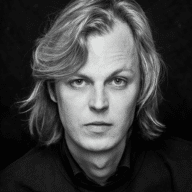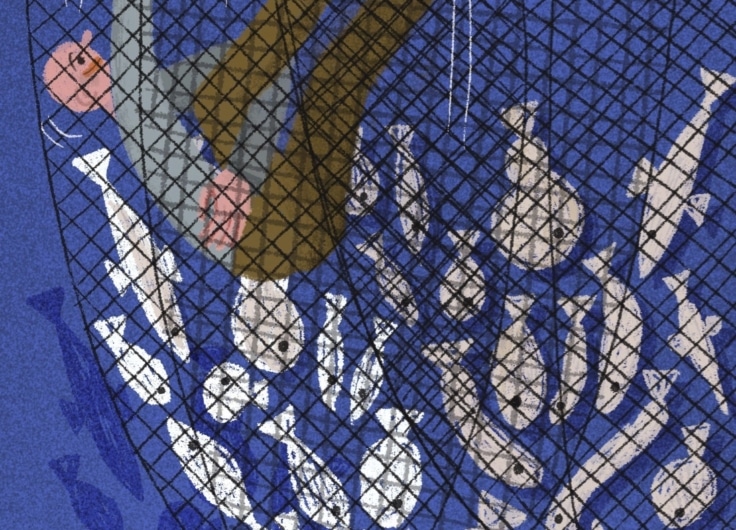In the Shadow of Holland’s Prosperity
In the streets of Amsterdam or Rotterdam, one will see far fewer homeless people than in the streets of Paris or Brussels. However, Dutch cities also struggle with increasing poverty. For the first time in history, the country has even appointed a Minister for Poverty Policy. Behind the image of the well-organized Netherlands, a distressing reality is hidden, writer Jonah Falke discovered.
Paris is deserted, it is two days before Christmas in 2019. A large part of public transport is on strike against pension system reforms. Only taxis and crowded buses with fogged-up windows drive through the empty streets. The bus drivers are driving fast and look bored. The year was long, and the days are short.
The Parisians have largely disappeared, kept inside by the cold or the holiday season, or gone to visit family or friends in the countryside. Even most European tourists have abandoned a visit to the city. Paris is left to the homeless, bicycle couriers, a handful of Americans, Chinese, and Japanese. The city resembles how much of the world would look a few months later: in lockdown.
Just before I left Paris, I saw a homeless man lying on an air vent in the shadow of a grand building on the Seine River. I approached him and stood still because he did not move. A woman in a yellow raincoat called an ambulance. They arrived with flashing lights but without sounding the siren. The nurses put on gloves, asked the man something, and then one of them briefly touched his neck, and that was it. The lifeless man lay waiting on the air vent to be buried ignominiously. The nurses took a white sheet from the ambulance. Perhaps he stood out too much amidst all the splendor and grandeur. The woman in the yellow raincoat was thanked and walked away, and then the life in the city resumed. Death on a street corner in one of the wealthiest neighborhoods in the world.
A mirage
In recent years, I have been researching poverty in the Netherlands and published a book about it in 2022 titled Van armoede. Reportages over het leven in de schaduw van welvaart (About Poverty. Reports on Life in the Shadow of Prosperity). The lifeless man in Paris marked the beginning of my quest. He became a powerful metaphor for what poverty in the Netherlands represents: most of the time, poverty takes place on the periphery, away from public view. When it does occur in plain sight, it is often covered up or removed, and life goes on as if nothing happened. This hiddenness seems to hinder finding solutions, as an unspoken problem does not exist.
The hiddenness of poverty seems to hinder finding solutions
At first glance, everything seems fine. In the Netherlands, there are measures in place to assist people in need, and nobody has to sleep outside. There is always somewhere to get a free meal, and if someone has problems, they can go to a website or a friendly government employee behind a counter who can assist them in finding the right resources. You might think that all politicians and policymakers in the Netherlands have the constitution hanging above their beds and always sleep well because they know what freedom, equality and brotherhood mean. But it’s a mirage, as many people do not know how to find their way to help and enlightenment.
The Dutch Constitution seems to have become a piece of paper used for calculating sums on the back. Government employees and caregivers have a limited amount of time available. There are beds, but people also freeze to death on the streets in the Netherlands. In suburban areas, there are many flats where people lead socially isolated lives without friends or family, without carpeting or furniture. To save on expenses, their homes are cold, and families go to bed hungry, shivering through the spring. In the Netherlands too, the general lack of trust in the government often results in people choosing to suffer silently rather than to seek assistance. There is hardly any incentive to escape their circumstances, as work usually does not pay off if you receive benefits: having a job makes you lose your allowances, and as a result, you are left with less money at the end of the month.
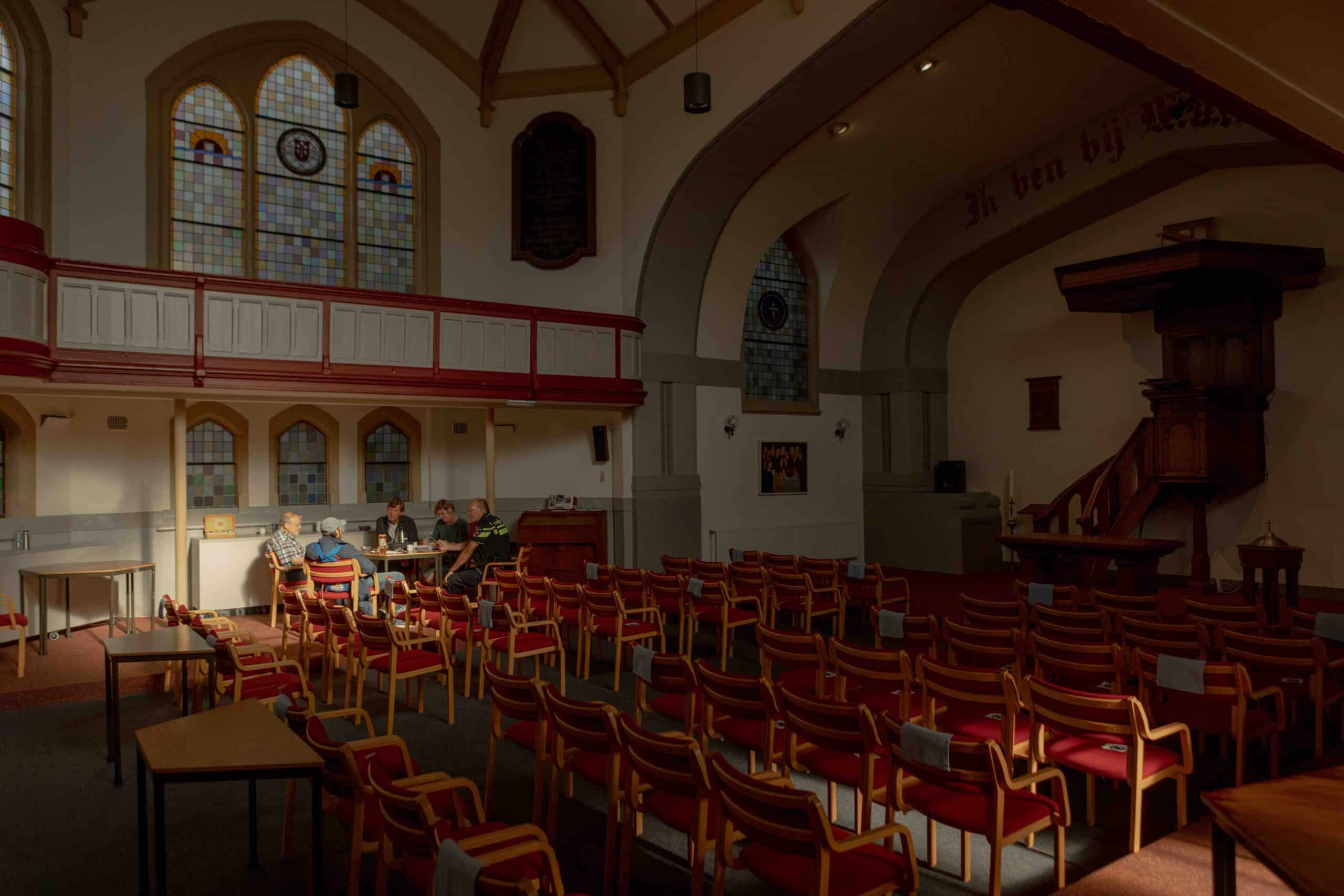 A general practitioner, a municipal officer, and a police officer during a consultation hour for homeless and undocumented people at the Lutheran Church in Nijmegen (photo from September 2021)
A general practitioner, a municipal officer, and a police officer during a consultation hour for homeless and undocumented people at the Lutheran Church in Nijmegen (photo from September 2021)© Desiré van den Berg
Renewed attention
The number of homeless people in the Netherlands has doubled since 2007. As of 2022, half a million individuals in the country are living in poverty, including two hundred thousand children. In 2022, thirty percent of the Dutch people could only just make ends meet or had to access their savings. Social workers have been warning about this for years, even before the pandemic struck; it will only get worse. Because while the world was recovering from the pandemic, the war in Ukraine broke out, leading to rising food and energy costs
Such figures remain an abstract concept, and the imagination falls short. But a rare advantage of this recent crisis is that the problem is no longer hidden in secrecy. Attention for poverty is suddenly arising as the middle class is also starting to feel the impact of rising costs. The middle class is more capable of organizing themselves and speaking out, and thus save themselves. However, if the middle class is already struggling, that invisible, silent group also grows larger. Individuals who are struggling to make ends meet are at a disadvantage cognitively: their IQ can decrease by as much as several points, which can hinder their ability to make wise long-term decisions.
Unable to keep up
One of the main drivers of many problems is the phantom called ‘efficiency’. What is envisioned and intended as progress, is for others the cause of stagnation and regression. It’s what many caregivers have told me: there are too many people who are unable to keep up in this digital world, while daily life for many still involves analog practices. It’s like a lifebuoy in a glass case that don’t have the key for. When viewed from a distance, it appears to be a too big, expanding, and unsolvable problem. The best way to prevent poverty is indeed a social network that offers initial support and guidance, but unfortunately, that cannot be bought.
Even in a prosperous country like the Netherlands, it seems impossible to save the entire population
Even in a prosperous country like the Netherlands, it seems impossible to save the entire population. While it may be impossible to save all of humanity, there are instances when an individual can be saved, at least temporarily. Those who observe the daily practices of a social worker can see that people are indeed being helped. However, poor people are often subject to the adverse impacts of their life circumstances; they are not bad or stupid. Sometimes, when the system works against them, the most efficient social worker might be the one to bend or break the rules regarding privacy and such. The type you see in the movie Hors normes (2019): two social workers who take in complex, autistic children and disadvantaged youth that are rejected by institutions, in Paris.
Concrete plans
Those in power are slowly realizing that it’s not poverty that is fought, but the poor themselves. For the first time in history, a Minister for Poverty Policy was appointed in the Netherlands: Carola Schouten (ChristenUnie/ Christian Union). During the first two months in her role, I had the opportunity to shadow her. At first, she was often asked “Is it necessary to have a Minister for Poverty Policy in the Netherlands?” That question evaporated when the war broke out in Ukraine and the world proved to be interconnected. The consequences of geopolitical decisions were tangible even in the supermarket and the living room.
Schouten spoke with a lot of people from “disadvantaged” neighborhoods and patiently listened to caregivers and their ideas on how things could be done differently. Because policy is refined through practice, not the other way around. Schouten quickly learned what could help: the world needed to become simpler. There should be contact points, intermediaries between government and citizens. In recent years, people have been met with mistrust, she said.
For now, the following plans are in place: the government will allocate 120 million euros annually over the next few years to tackle financial concerns, poverty, and debt. This will allow municipalities to offer debt assistance to more people and focus on quicker repayments and potentially provide partial or complete debt relief. In the summer of 2022, a forty-step action plan was presented, which aims to reduce the number of children living in poverty by 50% in 2025 compared to 2015, reduce the number of people living in poverty by 50% in 2023 compared to 2015, and reduce the number of people with problematic debts by 50% in 2030.
Those in power are slowly realizing that it’s not poverty that is fought, but the poor themselves
In addition, measures to increase purchasing power have been taken, especially for the most vulnerable households. These consist of: an energy allowance for low incomes (1,300 euros in 2022 and 2023), a ten percent increase in the minimum wage and benefits in 2023, a higher child allowance, and a higher healthcare and housing allowance. Moreover, young people (up to twenty-seven years old) can live at home without consequences of their parent’s benefits. They are no longer counted as cost-sharing cohabitants. Free school breakfast is also provided at five hundred primary schools with vulnerable students (for four months). And in the coalition agreement, it has been agreed to reassess the social minimum every four years and determine whether it is sufficient to live on and participate in society.
Regaining trust
A plan was developed to bring together the government and citizens, and enhance their relationship, by involving all voluntary buddies in the Dutch Debt Relief Route and encouraging their collaboration with municipalities across the country. These volunteers strengthen the role of poverty prevention, as they have a signaling function, increase knowledge, have the skills and craftmanship of professionals, and build and strengthen chains, with the aim of connecting financial, mental and physical health in a network close to the people. By collaborating with municipalities, the Dutch Debt Relief Route, and the Salvation Army, citizens can quickly be directed to the “Voorzieningenwijzer” (benefits guide), a tool that provides information on the benefits and services that individuals are eligible for. For instance, up to 30% of the regulations were not utilized in 2022. Schouten wants to make it a legal requirement to actively inform people about regulations they are entitled to but not using.
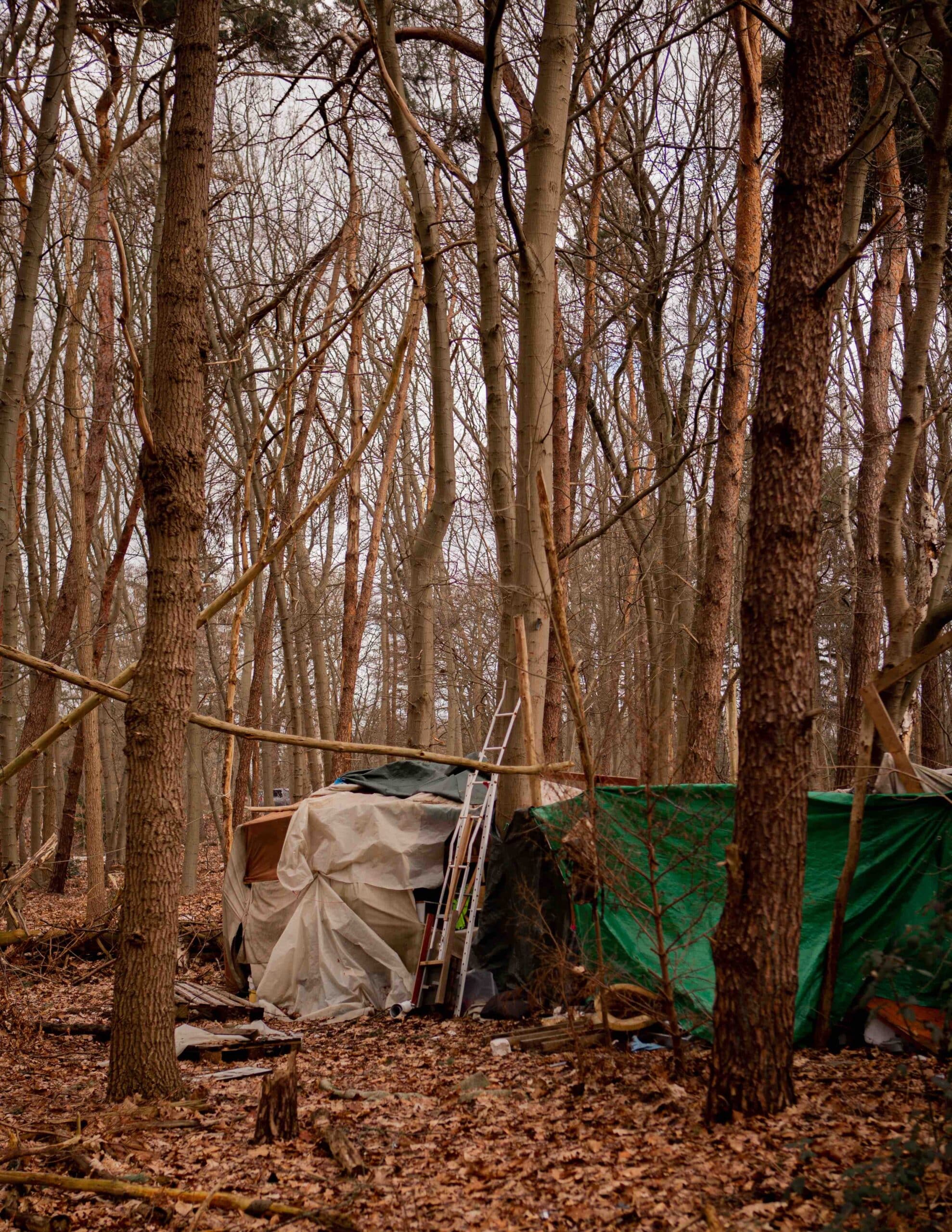 A house that a man built for himself in the woods of Nijmegen, where he has been living with his dogs for years. The Buitenzorg Nijmegen team visits him regularly (photo from November 2021)
A house that a man built for himself in the woods of Nijmegen, where he has been living with his dogs for years. The Buitenzorg Nijmegen team visits him regularly (photo from November 2021)© Desiré van den Berg
Regaining trust in the government is primarily about how you make laws and regulations, says Schouten. So far, there have been two major shortcomings: the often-strict laws and regulations assumed that citizens understood everything, and they made it difficult to look out for each other. “I immediately got to work,” says Schouten, “by adjusting rules that allow you to receive gifts, that enable you to go on carefree shopping trips with your caregiver, and that prevent you from being immediately labeled as a fraudster if you make one mistake. That is a good example of how I want to bring the human element back into laws and regulations.
The world is changing at a faster pace than our ability to respond, despite our good intentions. Schouten felt as though she was cycling uphill from the beginning, but by 2022, it seemed like someone had latched onto her luggage rack while she climbed. Although governing is said to require foresight, the maximum term of only four years hinders this long-term vision.
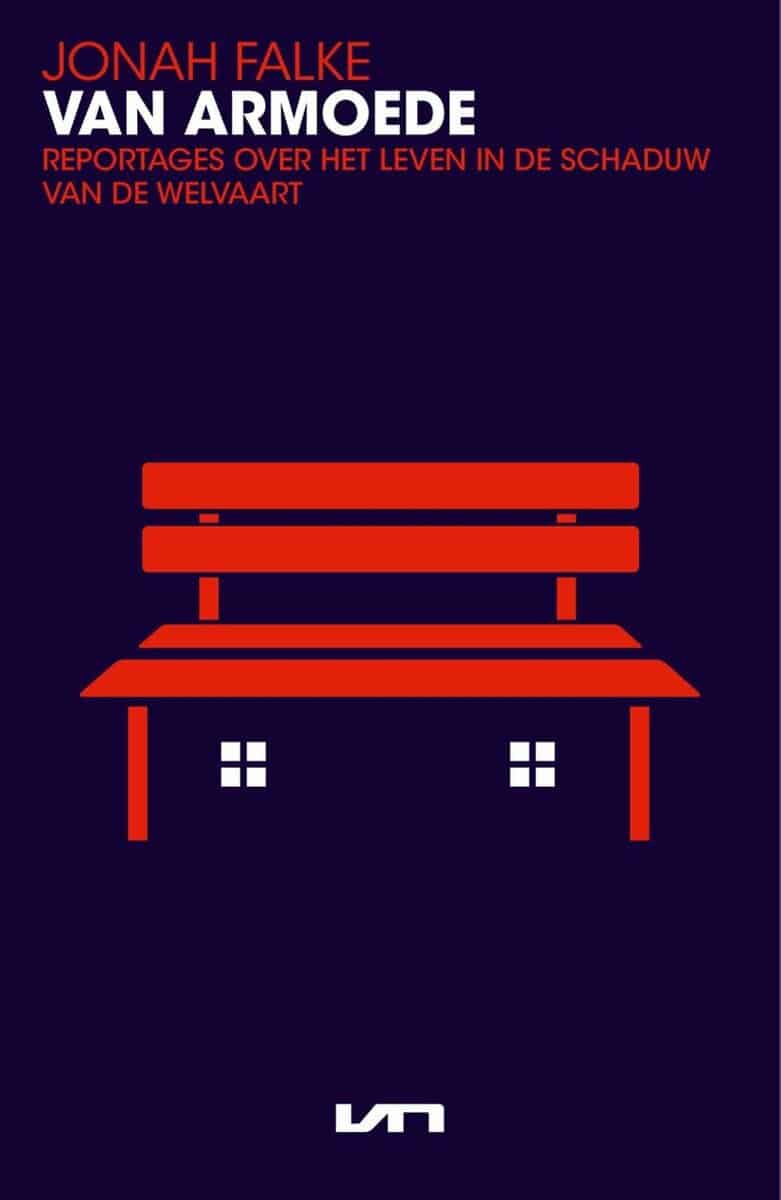
Another drawback of this ministerial post is that Schouten does not have a separate budget and must lobby other ministries for funding. While cynics would say it’s a symbolic role, I don’t share that sentiment. Her dedicated efforts are likely to yield positive results, although the extent of this success remains to be seen. People will undoubtedly be helped, but just as the social worker cannot save humanity, neither can the government.
Van armoede. Reportages over het leven in de schaduw van de welvaart by Jonah Falke has been published by Vrij Nederland Publishers.

